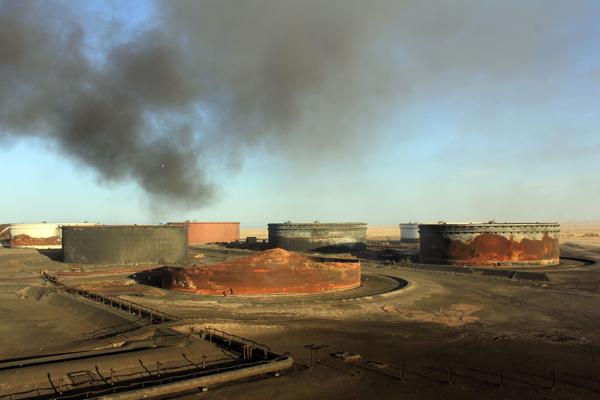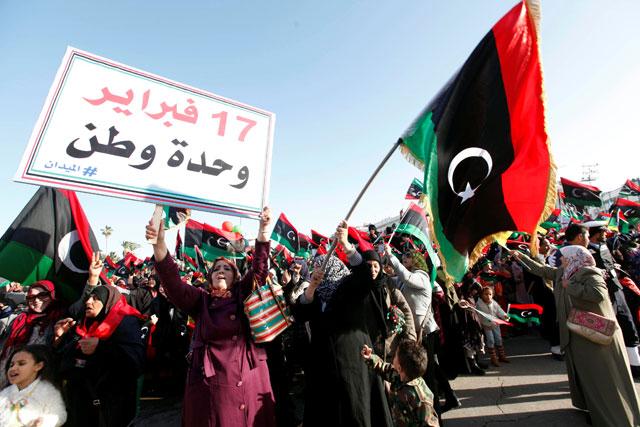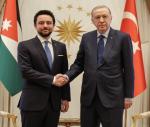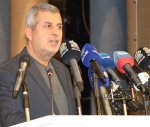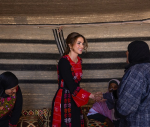You are here
French foreign minister visits Libya in new push for UN talks
By Reuters - Dec 21,2017 - Last updated at Dec 21,2017
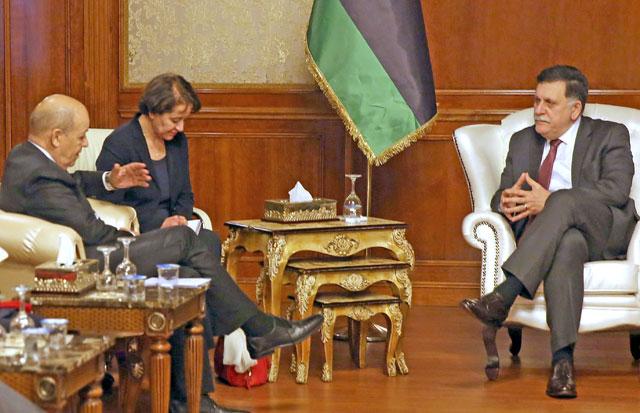
Government of National Accord Prime Minister Fayez Al Sarraj (right) meets with French Foreign Minister Jean-Yves Le Drian in the Libyan capital Tripoli on Thursday (AFP photo)
TRIPOLI — Libya's rival factions should stick to a United Nations peace process and prepare for elections in spring 2018, French Foreign Minister Jean-Yves Le Drian said on Thursday, trying to give stalled UN talks a new push.
The North African country has two rival governments, one in the east and a UN-backed administration in the capital Tripoli in the west, in a conflict stemming from the overthrow of Muammar Qadhafi in 2011.
France was a leading player in the NATO intervention against Qadhafi, sending warplanes to bomb his forces.
The United Nations launched a new round of talks in September in Tunis between the rival factions to prepare for presidential and parliamentary elections in 2018, but they broke off after one month.
"I noted the desire from the Prime Minister [Fayez Al Sarraj] to stick to the calendar. We have a total convergence of views to implement this agenda," Le Drian said after meeting the Tripoli-based prime minister in the Libyan capital.
Drian will later fly to the eastern city of Benghazi to meet the powerful eastern military commander Khalifa Haftar, who on Sunday called the UN-backed government and peace process obsolete.
The UN talks had stumbled over the question of what role Haftar should play. He indicated on Sunday he wants to run as presidential candidate.
Haftar remains popular among Libyans in the east who are weary of the chaos, but faces opposition in western Libya.
The eastern-based House of Representatives on Tuesday widened divisions between east and west by approving a new central bank governor. The bank's Tripoli headquarters and the UN rejected the move.
Le Drian said a political deal would help solve crisis of thousands of illegal migrants stuck in detention centres in Libya where human rights groups said they often face abuse. Libyan officials deny this but say they are overwhelmed with a flood of migrants.
Libya is the main departure point for illegal migrants heading for Europe by boat.
Related Articles
TRIPOLI — France's Foreign Minister Jean Yves Le Drian was in Libya on Monday to meet rival political leaders and offer support for a deal a
BENGHAZI, Libya — Forces loyal to eastern Libyan commander Khalifa Haftar on Sunday seized at least two key oil ports from a rival force loy
MUNICH — Libyan Prime Minister Fayez Sarraj of the UN-backed government in Tripoli said on Sunday he would like Russia to help overcome dead


